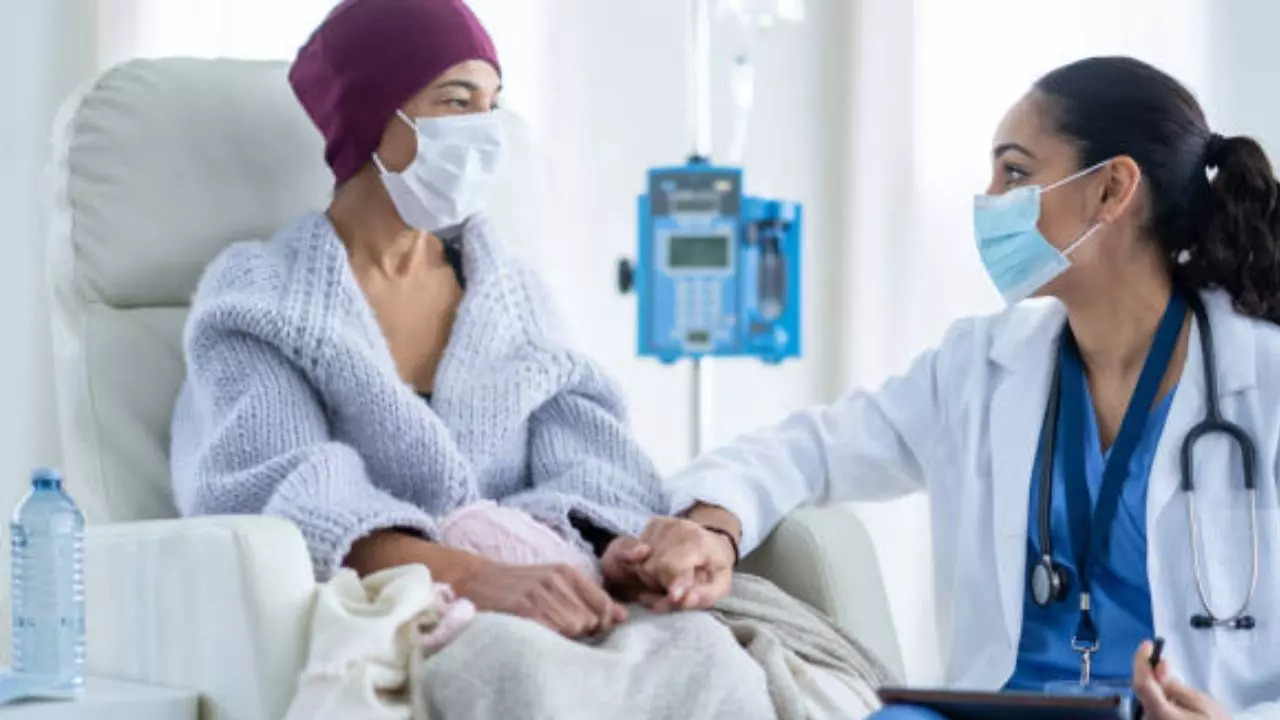Cancer prevention tips: Expert shares seven strategies to reduce risk (Image credit: iStock)
Cancer Cancer is one of the leading causes of death worldwide, but many cases are preventable. While some risk factors, such as genetics, are beyond our control, lifestyle choices play a major role in reducing the risk of developing cancer. While there is no 100 percent guarantee that cancer will not strike, reducing the risk by being proactive can be quite effective. We got in touch with Dr. Babita Bansal, Senior Consultant, Radiation Oncology, Andromeda Cancer Hospital Sonipat, who shares seven tips to help reduce the risk of cancer.
1. Stay away from Tobacco In all forms: The most common preventable cause of cancer is tobacco use. Cancer of the lung, mouth, throat, pancreas, and bladder are among the many malignancies that are increased by cigarette, cigar, pipe, and smokeless tobacco use. Cancer risk can also be increased by exposure to secondhand smoke. Quitting tobacco use improves overall health, as well as reducing cancer risk. cancer riskSeek help from a health care professional or consider enrolling in a quit smoking program if you need help quitting.
2. Increase your physical activity: Maintaining a healthy weight reduces your risk of several types of cancer, including breast, prostate, lung and colon cancer. Regular physical activity is key to achieving this goal. Aim for 150 minutes or 75 minutes of vigorous-intensity or moderate-intensity aerobic activity per week. Include strength-training activities to increase your metabolism and muscle mass. Physical activity not only reduces your risk of cancer, but also improves your overall well-being and mental health.
3. Eat healthy: You can reduce your risk of cancer by eating a diet rich in fruits, vegetables, healthy grains, and lean proteins. Emphasize plant-based diets, which are rich in cancer-fighting nutrients and antioxidants. Cut back on red and processed meats, as they have been associated with an increased risk of colorectal cancer. Also cut back on refined carbohydrates and sugar, as they can contribute to obesity, which is a known risk factor for several types of cancer. Aim for a balanced diet that provides vital nutrients and helps you maintain a healthy weight.
4. Protect yourself from the sun: Melanoma and other forms of skin cancer are among the most common and preventable cancers. Even on cloudy days, protect your skin from harmful ultraviolet (UV) radiation by using sunscreen with an SPF of 30 or higher. During the hours of 10 a.m. to 4 p.m., when the sun is strongest, seek shade. Wear protective gear, such as sunglasses, long sleeves, and wide-brimmed hats. Stay away from tanning beds, as they release UV radiation that increases the risk of skin cancer.
5. Reduce your alcohol consumption: Alcohol consumption is associated with a higher chance of developing breast, liver, colon, and esophageal cancer, among other types of cancer. The risk increases as alcohol consumption increases. Limit your alcohol intake to one drink a day for women and two for men to reduce your risk of cancer. If possible, consider abstaining from alcohol. The risk of cancer is lower the less alcohol you consume.
6. Frequent medical examinations: Regular cancer screenings can help find the disease early and improve treatment outcomes. Screening tests that include skin checks, Pap tests, colonoscopies, and mammograms can identify cancer at an early stage, when it is most curable. Talk to your health care provider about screening tests that are right for your age, sex, and risk factors. Plus, routine exams offer a chance to discuss any health concerns and receive personalized care. cancer prevention information.
7. Get vaccinated: An increased risk of cancer may result from specific viral infections. While the hepatitis B virus can cause liver cancer, the human papillomavirus (HPV) is associated with malignant tumors of the throat, cervix, and other organs. Getting vaccinated against these viruses can dramatically reduce the risk of cancer. The hepatitis B vaccine is typically given to infants, but it can also be given later in life. The HPV vaccine is recommended for boys and girls starting at age 11 or 12.
Disclaimer:
The information contained in this post is for general information purposes only. We make no representations or warranties of any kind, express or implied, about the completeness, accuracy, reliability, suitability or availability with respect to the website or the information, products, services, or related graphics contained on the post for any purpose.
We respect the intellectual property rights of content creators. If you are the owner of any material featured on our website and have concerns about its use, please contact us. We are committed to addressing any copyright issues promptly and will remove any material within 2 days of receiving a request from the rightful owner.

